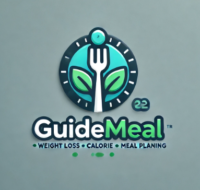When it comes to weight loss, many myths can trip you up. For instance, skipping meals won't help; it often leads to overeating later. And don't be fooled—carbs aren't the enemy; they fuel your body, especially when you choose whole grains and veggies. Fat-free products can be misleading too, often filled with sugar instead of good fats that keep you full. Additionally, weight loss supplements aren't magic; healthy habits matter more. Finally, remember, all calories aren't equal. A candy bar and an avocado offer very different benefits. Curious about more myths? There's plenty more to uncover! 🍏✨
Key Takeaways
- Skipping meals can lead to increased hunger and overeating, undermining weight loss efforts.
- Carbohydrates are essential for energy; choosing complex carbs supports satiety and weight loss.
- "Fat-free" products often contain high sugar levels and unhealthy additives; healthy fats are vital for overall health.
- Weight loss supplements cannot replace a balanced diet and exercise; sustainable habits are crucial for lasting results.
- Not all calories are equal; prioritizing nutrient-dense foods over empty calories promotes better health and effective weight management.
Skipping Meals Helps Lose Weight

Many people believe that skipping meals can lead to weight loss, but this myth can actually hinder your progress. When you skip meals, you might think you're cutting calories, but your body can respond in surprising ways. Have you ever noticed how hungry you feel after skipping breakfast? That hunger can lead to overeating later in the day, which often cancels out any calorie savings. Additionally, meal planning can help you create balanced meals that prevent hunger and maintain energy levels throughout the day.
Instead of dropping meals, focus on eating balanced, smaller portions throughout the day. This keeps your metabolism active and helps maintain your energy levels. Think about it—wouldn't you rather have steady energy instead of the rollercoaster of hunger and cravings?
Also, skipping meals can rob your body of essential nutrients. You might miss out on important vitamins and minerals, which can affect your overall health. Your body needs fuel to function properly, especially if you're active.
In short, don't skip meals thinking it'll help you lose weight. Instead, aim for regular, nutritious meals and snacks. This way, you'll support your weight loss goals and feel great while doing it!
Carbs Are Always Bad
Believing that carbs are always bad can lead to misguided dietary choices that actually undermine your weight loss efforts. Carbohydrates are an essential part of your diet. They provide energy, which you need for daily activities and exercise. Have you ever felt sluggish after skipping carbs? That's your body craving the fuel it needs! Using a meal planner can help guarantee you're choosing the right types of carbs and balancing your meals effectively, enhancing your journey towards healthier eating habits. Meal Planning Tools and Features can provide guidance on incorporating nutritious options into your diet.
Not all carbs are created equal. Simple carbs, like sugar and white bread, can spike your blood sugar and leave you feeling tired. But complex carbs, like whole grains, fruits, and vegetables, are packed with nutrients and fiber. They keep you full longer and help with digestion. 🤩🍎
Instead of cutting out carbs completely, think about balance. A meal with protein, healthy fats, and complex carbs can be satisfying and promote weight loss. For example, a whole grain wrap with lean turkey and veggies can be a great choice.
Fat-Free Means Healthy

When you're shopping for snacks, the label "fat-free" might seem like a green light for healthy eating, but this isn't always the case. Have you ever flipped a package over and noticed the sugar content? Many fat-free options are loaded with sugar and artificial ingredients to make them taste better. So, are you really eating healthier? It's important to recognize that meal planning and understanding nutrition can greatly enhance your weight loss efforts, as effective meal planning aids in weight loss efforts.
Let's break it down. Fat is an essential nutrient your body needs for energy, brain function, and even absorbing vitamins. When you eliminate fat, you might miss out on these benefits. Plus, fat can help keep you feeling full. Ever feel hungry shortly after munching on a fat-free snack? That's because healthy fats help curb your appetite.
Instead of chasing "fat-free" labels, focus on whole foods. Think about avocados, nuts, and olive oil. They contain healthy fats that are good for you! 🤑
Next time you grab a snack, ask yourself: Is this truly healthy, or just marketed that way? Remember, not all fat is bad, and sometimes, a little can go a long way in keeping you satisfied and nourished.
Supplements Guarantee Weight Loss
The truth about weight loss supplements is often overstated. Many people believe that taking a pill or drink will magically melt away the pounds. But let's be real—there's no magic solution! You can't just rely on supplements and expect results without putting in the effort.
Here are a few key points to reflect on:
- Diet and Exercise Matter: No amount of supplements can replace a healthy diet and regular exercise. Have you ever noticed how much better you feel after a workout?
- Ingredients Vary: Some supplements may contain harmful ingredients or untested compounds. Do you really want to risk your health for quick results?
- Temporary Results: Even if a supplement helps you lose weight, it often doesn't last. Have you experienced yo-yo dieting before?
Instead of relying solely on supplements, focus on building sustainable habits. Eating balanced meals and staying active will lead to long-lasting change. Remember, you're in charge of your health journey! So, approach weight loss with a mix of common sense, commitment, and a little patience. 🌟 Your body will thank you!
All Calories Are Equal

Many people mistakenly think that all calories are created equal, treating them like mere numbers on a label. But have you ever stopped to think about what those calories really represent? Not all calories impact your body the same way.
For instance, 100 calories from a candy bar and 100 calories from an avocado are not the same! The candy bar is full of sugar and offers no real nutrients, while the avocado provides healthy fats and fiber. Your body processes these foods differently. 🍫 vs. 🥑
When you eat whole foods, like fruits, veggies, and lean proteins, you're fueling your body with nutrients that promote health and help you feel full longer. So, wouldn't you rather focus on what you eat, not just the numbers?
Aiming for quality over quantity can help you lose weight and feel great. Think about it: do you want to feel satisfied and energized, or just count calories?
In short, remember that not all calories are equal. It's about finding a balance that fits your lifestyle and keeps you healthy. So, choose wisely! 🌟

